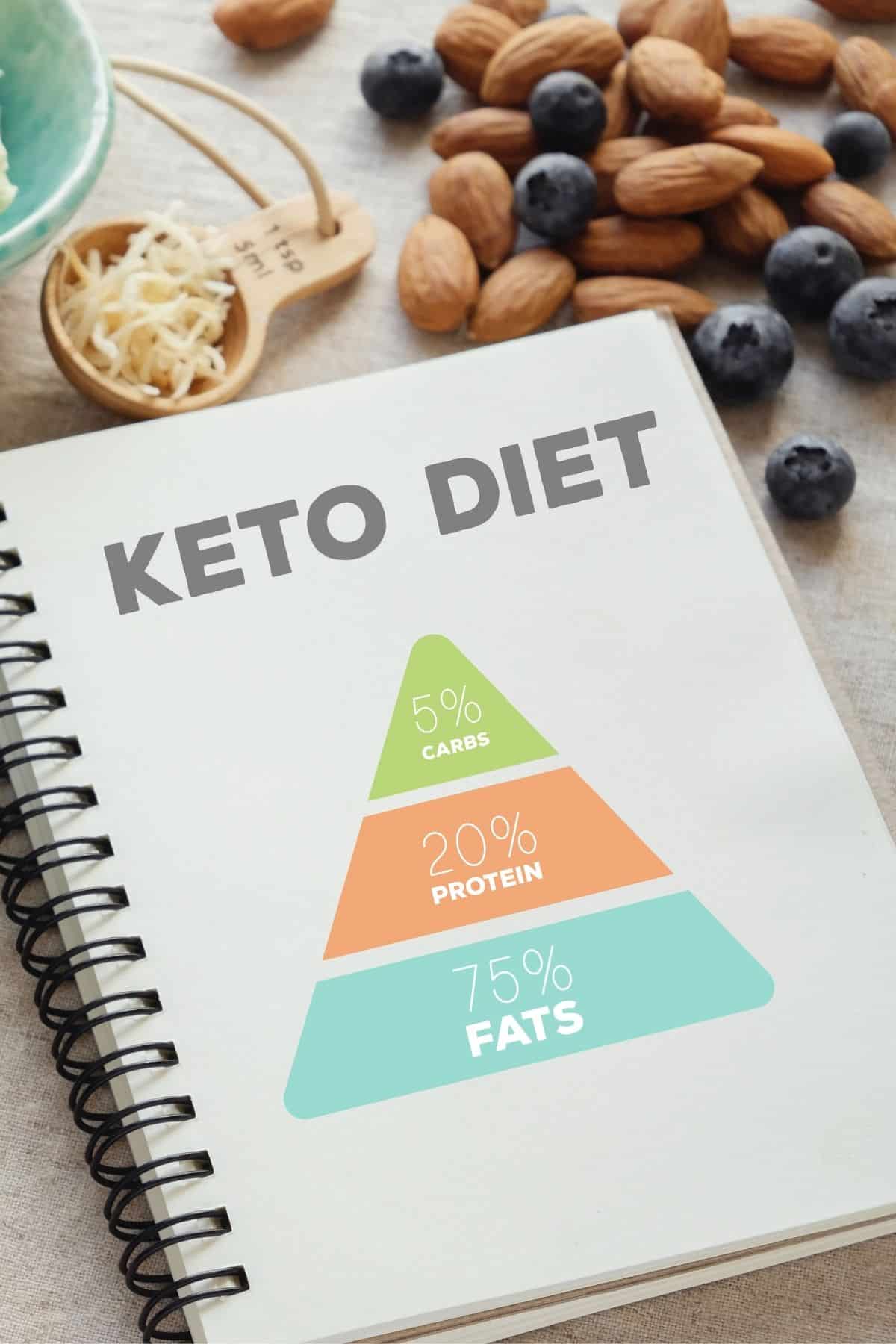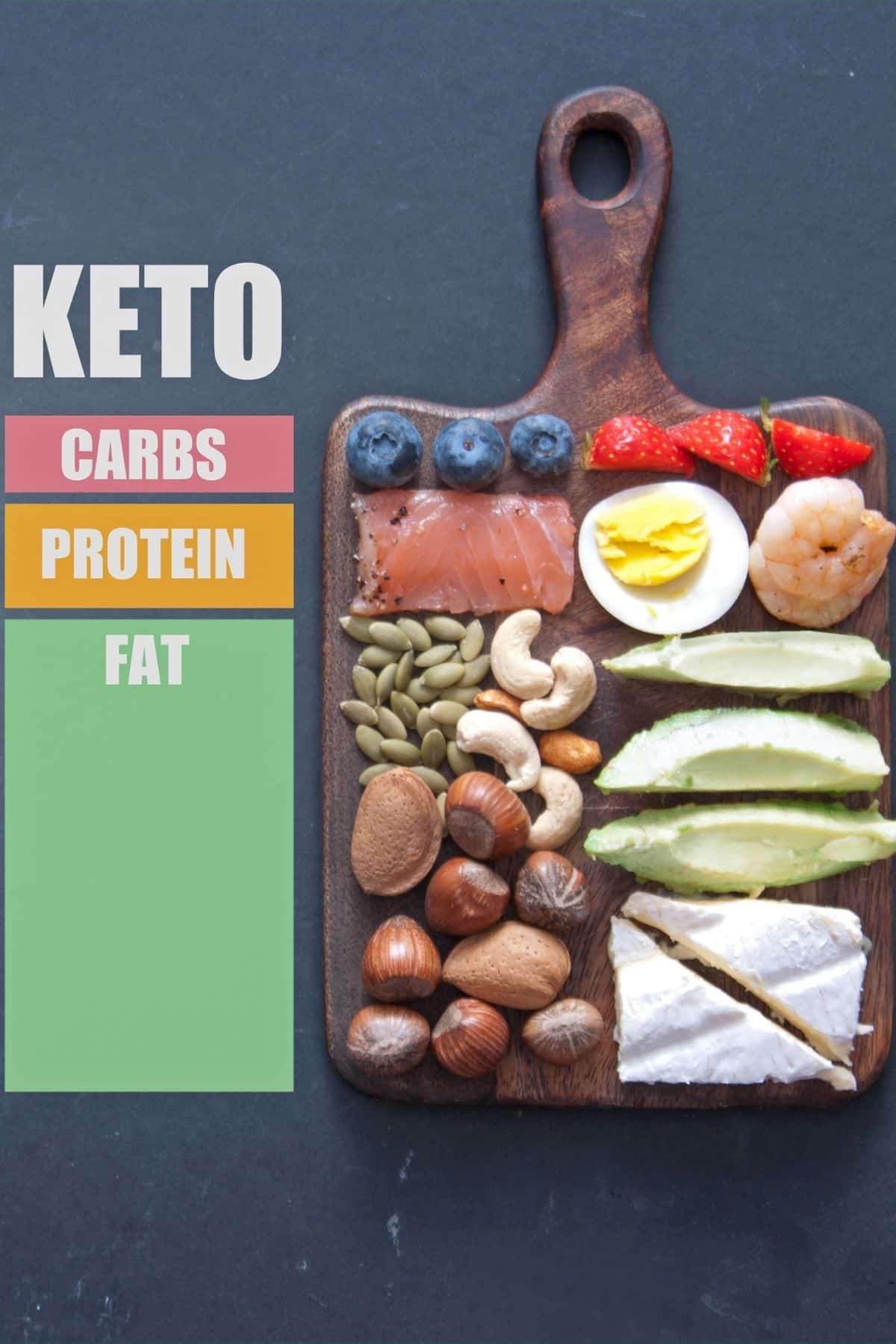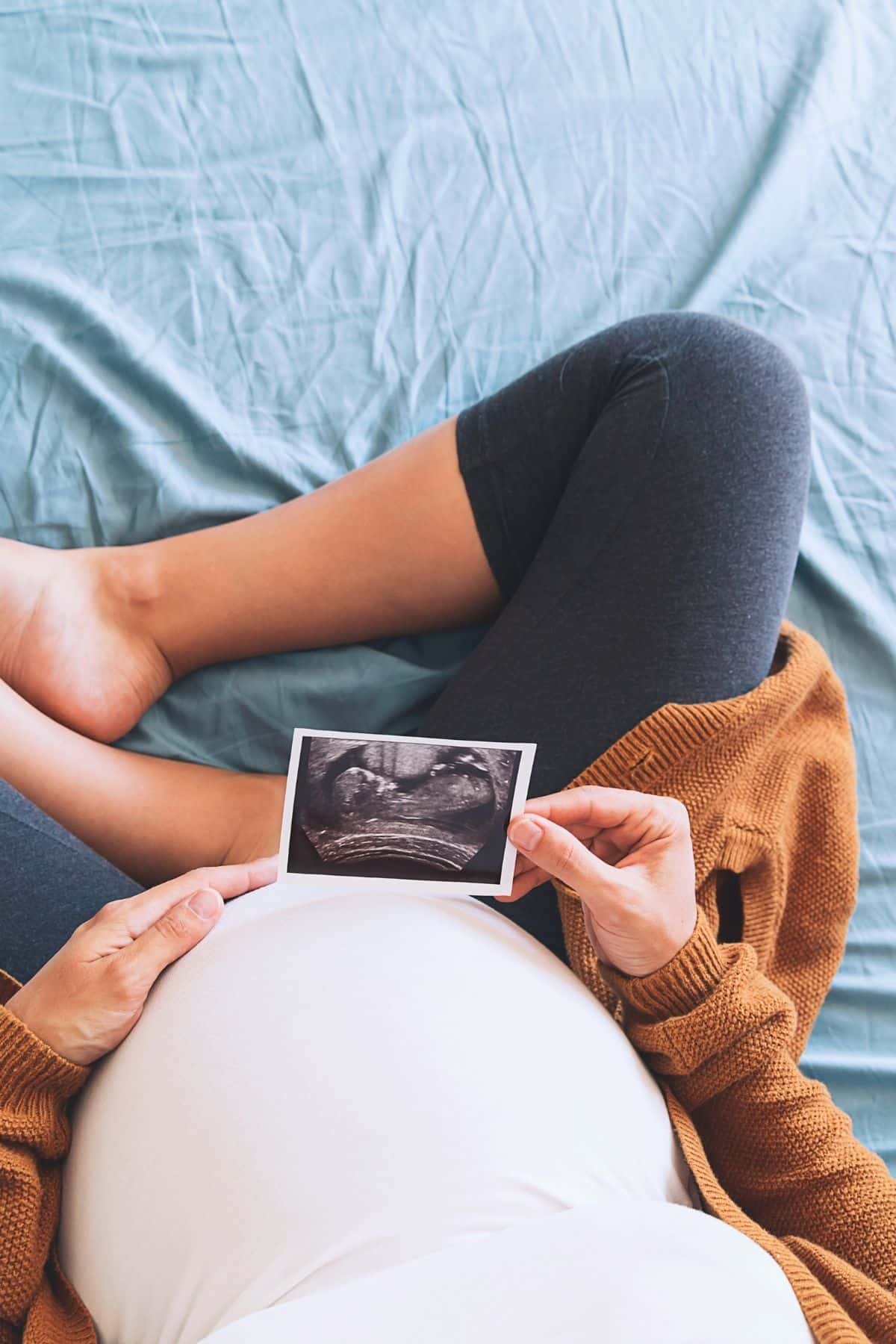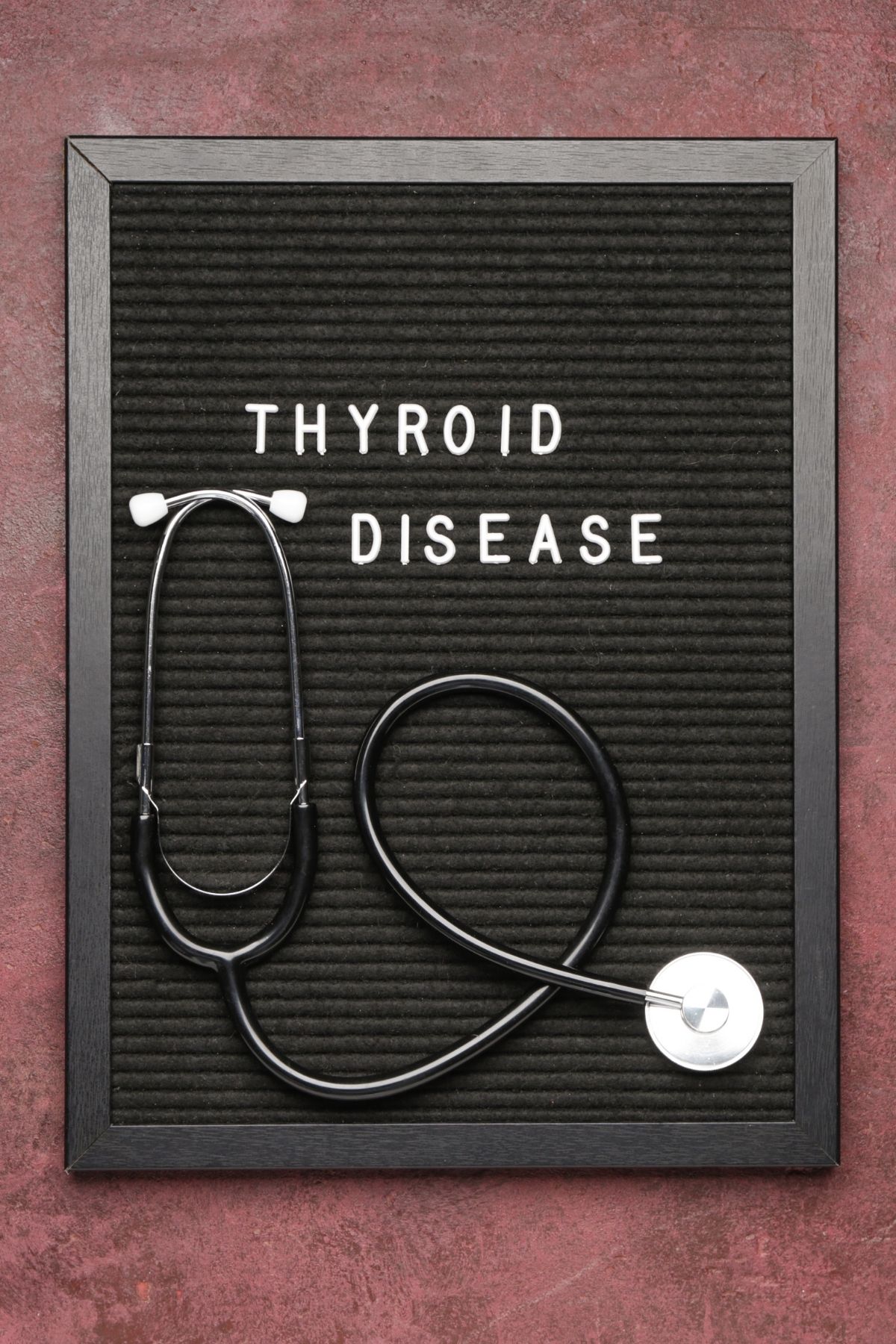Who Should Not Do Keto?
The ketogenic diet has gotten really popular. But what exactly is this diet and who should not do keto? Be sure to read this article before going keto so you are aware of the potential risks to your health.

A ketogenic diet has been all the rage for the last few years, but it’s not right for everyone. There are some definite risks in going keto which you should be aware of before trying it.
This article shares some of the potential dangers of a ketogenic diet, and which groups of people should avoid ketosis, including pregnant women, people with eating disorders, people who are hypothyroid, people with gallbladder disease, children, and high performance athletes.
The information in this article includes information from research articles, but there are no definitive studies on a large scale that show the safety of a ketogenic diet for most people.
What is a Keto Diet?
The goal of a ketogenic diet is to eat a lot of fat so that your body becomes adapted to burning it for fuel. For most people following a keto diet, the aim is to consume approximately 60-80% of daily calories from fat, 15% from protein, and less than 10% from carbohydrates. This is a high-fat diet that may not be a good idea for many people.
The premise of a keto diet is that if you fuel your body with mostly fat (and ketone bodies) while restricting carbohydrate intake, you’ll potentially lose weight, regulate insulin levels, and lower inflammatory markers within your body.
If you are restricting carbohydrates, then your body produces ketones from fat during a process called ketosis. The purpose of producing ketones is to provide energy to the body as an alternative to glucose from carbohydrates.
This is a low-carb diet taken to the most extreme, often limiting ones daily intake of carbohydrates to single-digit figures.
See my related article about What is an Ancestral Diet?

Who Should Not Go Keto
If you’re seriously considering trying a keto diet, then you really should discuss it first with a licensed healthcare provider who can help determine if it is right for you.
A dietitian or other type of healthcare provider can also help develop a plan to make sure that whatever diet you try is safe and meets your overall nutritional needs.
That said, there is some research, anecdotal evidence, and agreement on certain groups of people who should not try a keto diet, and who may experience health risks or negative outcomes on a ketogenic diet.
1. People with eating disorders
People who have an active eating disorder or a history of disordered eating patterns should be very cautious when considering a restrictive diet like keto.
The risk of going on a keto diet to people in this group is that the strict rules will trigger the unhealthy patterns again. This can have an overall negative effect on health over the short term and the long term.

In fact, there is some research that shows that people with a history of eating disorders or in orthorexia recovery may do better using a non-diet approach.
Therefore, since a ketogenic diet is a highly restrictive diet, anyone who has a history of disordered eating behavior should not consider this way of eating unless prescribed by a doctor and carefully supervised by a professional.
In the same vein, there are also problems with a plant-based diet.
2. Pregnant women
Because a ketogenic diet only contains around 15% of calories from protein, it may not be right for women who are pregnant.

It’s recommended that a woman who is pregnant get at least 20% of her calories from protein. The protein requirements for pregnancy then increase up to 25% during the third trimester of pregnancy when the fetus is rapidly growing. See my list of the best protein powders for pregnancy.
Because a keto diet is higher in fat and lower in the other macronutrients than a normal diet, this may signal food scarcity for the body. For pregnancy, this is not ideal since overall nutrient needs are quite high to nourish both the mother and fetus.
Women who are trying to conceive should also be wary about going keto unless advised by a healthcare professional. Learn more about the best diet for fertility. You might also want to read this article on the dangers of intermittent fasting for women.
3. People with adrenal fatigue
While adrenal fatigue is not considered to be a diagnosable condition by most doctors, there are some people who receive this diagnosis from their healthcare providers.

When someone is thought to have adrenal fatigue or adrenal burnout, then this means that the adrenal glands are not producing hormones in the right levels or at the right times throughout the day.
While I could not find any research studying the effects of a keto diet on cortisol levels, there is research showing that low-carb diets can negatively affect cortisol levels. More research is needed to determine whether or not a keto diet is appropriate for people with symptoms of adrenal fatigue.
You may also want to check out my article with resources if you feel tired all the time.
4. People with hypothyroidism
Insulin is needed to convert the inactive thyroid hormone T4 into the active hormone T3.
People on a ketogenic diet generally restrict carbohydrates to the point where not enough insulin is available for this process.

Some people with hypothyroidism who adopt a keto diet report that their hypothyroid symptoms get worse following this way of eating. At least one study indicated that a ketogenic diet can cause thyroid malfunctions in some people.
See my related article on the worst foods for Hashimoto’s.
In this case, a grain-free diet might be more helpful than a low-carb or ketogenic diet.
5. People with no gallbladder
If you have had your gallbladder removed, you may want to think twice about starting a ketogenic diet.
The risk of going keto when you have gallbladder disease is due to the amount of fat you will need to consume.

If you have no gallbladder or you have gallbladder disease, you may not have enough bile to break down the fats. The danger in this situation is that you may become malnourished or experience unpleasant symptoms as your gallbladder struggles.
The general diet recommendations for people who have no gallbladder or who have gallbladder disease leans more toward a low-fat diet.
6. People with a history of gut dysbiosis
A ketogenic diet has been shown to alter gut flora. Those with a history of gut or digestive issues need to be careful when following a ketogenic diet. The danger to this group of people is that a very low-carb diet will reduce the diversity of the gut microbiota.
One of the main issues with a keto diet and a maintaining a healthy gut environment is that our bodies need prebiotics. Prebiotics feed the healthy bacteria in our intestines.
The concern around very low-carb diets is that there is not enough fiber from carbohydrate sources to feed the gut bacteria.
Learn more about natural probiotic food sources, the best gut healing foods, and how to eat a low-histamine diet.
7. Children and teens
Children and teens are still growing and developing and need a balanced diet.
Unless a keto diet is prescribed by a healthcare provider and is monitored closely, it may cause nutritional deficiencies.
Read more about a keto diet for kids, including when it may be appropriate.

When it comes to adolescents on keto, the main concern is for females who may experience changes in their menstrual cycle. See my article on how to eat during your menstrual cycle. There is also a risk of delayed puberty on a very low-carb diet.
Again, since there is no definitive research on children or adolescents and the safety of keto diets, it’s best to consult directly with your healthcare provider, and to keep close tabs on any young person who is on this type of diet.
8. High performance athletes
A ketogenic diet may be challenging if you’re a competitive or high-performance athlete since higher activity levels require more calories and quick fuel that often come from carbohydrate sources.

There is some research that shows that athletes who adopt a ketogenic diet may have issues. On the contrary, there is much more research showing that higher-carbohydrate diets are best for athletes.
Other Groups
There are other groups of people who may not do well on a ketogenic diet. These include people with a history of kidney disease or people with kidney stones. People with liver disease may also need to avoid keto diet plans to avoid adverse effects.
There may be other health conditions that won’t work well with this high fat diet.
What Does the Research Say?
Of course, a ketogenic diet can benefit certain groups of people. Traditionally, a ketogenic diet has been used in the treatment of epilepsy in both children and adults to control epileptic conditions.
People with type 2 diabetes have shown improvement in biomarkers as well when placed on a well-managed ketogenic diet. They may see reduced insulin resistance (improved insulin sensitivity) and better control over blood sugar levels.
One study showed that adults with type II diabetes that followed a ketogenic diet for 12 months lost more weight and were more likely to not need medications compared to a similar group of people following a moderate-carbohydrate diet.
But, if weight loss is your goal, then you may not have to go as far as a state of ketosis to achieve results. Just consuming fewer carbs (especially refined carbs) can be effective.
The bottom line is that there is no one right diet for everyone. But, what works well for someone may not work well for you. Know your body and know what you can and cannot handle. You might also fare better on a lower-carb diet than a ketogenic diet.
Conclusions
If you fit into one of the above categories of people that may not benefit from a ketogenic diet, then it’s wise to think twice before adopting this lifestyle. Just because everyone seems to be adopting a ketogenic diet does not mean that you have to do it as well.
You might also be interested in this article where I explain the differences between paleo, keto, vegan, clean eating, and Whole30 diets. You might also want to check out my article with the dangers of intermittent fasting for women.
Additional References
Don’t Miss These Diet Resources
Don’t forget to join my newsletter list to get exclusive clean eating recipes and tips. The newsletter is 100% free with no spam; unsubscribe anytime.
About the Author: Carrie Forrest has a master’s degree in public health with a specialty in nutrition. She is a top wellness and food blogger with nearly 10 million annual visitors to her site. Carrie has an incredible story of recovery from chronic illness and is passionate about helping other women transform their health. Send Carrie a message through her contact form.
Note: this post is for informational purposes only and is not intended as medical advice. Please consult your healthcare provider for recommendations related to your individual situation.




















OMG If only I had this warning earlier and could have modified my diet then; having Fibro, low thyroid, no gallbladder, anemia and chronic fatigue, I shouldn’t have been loading this gun.
Lordy. I landed with a combination of health related problems due to “ketoing”. We’re talking full on scurvy, beri-beri issues complicated more with Chronic Fatigue and Fibromyalgia. My gums receded terribly to the point that one of my front teeth was showing the dendrite roots. Vitamin A, C and B are not easy to come by with the Keto diet and if you have already preexisting health conditions (like anemia, no gallbladder, etc) it is BEST to just modify your eating instead of doing this extreme diet. My hair started to fall out as well.
In the end, my teeth and gums are on the mend, I am now back to sleeping at night, and I am not hungry 24/7 either. It’s important that people eat a diet that works for the biologically and this one may not be the answer to every ill. I had no idea just how malnourished I became.
Oh my gosh, Mary, I am SO sorry to hear you had to go through all of that. I hope you are feeling better now. Stay well!!!
Thanks Carrie for a great article. Do many are joining in on the Keto Band Wagon believing that this diet is for everyone. I have many friends and clients thst swear by it. I did decide to give it a try myself, although I should not have. There is so much misinformation out there regarding Keto. There is no one size fits all diet and as a Health Coach I know this, but I didn’t really dig deep enough into the risks of this diet for the 20% that shouldn’t be doing it. Because even with that, there is still someone touting that this diet is safe and csn be successfully implemented by someone with hypothyroidism or no gallbladder. I fall into the category or both of these. I did give Keto a try for about 6 weeks. As far weightloss I did not see any big change that one may expect. I did see relief in some symptoms of IBS, such as less gastrointestinal gas. On the other hand I started to stop losing any weight after 4 weeks and even gained between weeks 4 and 6 without any changes in the diet orher than using stevia more often. I also, did not feel anymore energetic as some say is supposed to happen. I was actually becoming more tired and even though I was tired I had trouble getting sleep and would get overtired to the point that I would feel awake, having insomnia where my body trying to compensate the lack of sleep. I also began to have sn increase of itchy skin and other increased symptoms of my hypothyroid. Which is when I did further research to discover that with my hypothyroidism and no gallbladder that this diet was not safe for me. Of course friends and advocates of keto tell me that I am wrong and that I must not be following correctly and how I need to give it more time and that things will level out and that it will once again start working for me. I am a big proponent of there being no one size fits all diet and firmly believe this. However, I have many who disagree with me on this and are even trying to discredit my knowledge and education and saying that the most recent and latest scientific evidence supports their claim and rejects mine. They tell me to stop scaring everyone and back up my claims with science. I am a bio individual as we all are, so even if science proves them right, it can prove me right too because of my individual genetic, physiological, psychological and nutritional needs.
Carrie, thank you for this highly informative, well-researched article on the keto diet. It helped me to understand why I react so much better to a Paleo diet than keto ( as I have no gall bladder and constant fatigue. ) This article is even more important today then when you first wrote it, because in 2019 we are being constantly bombarded by keto in the mainstream media. Having read numerous articles on keto in the past several years, I found yours to be the easiest to understand. And your links were helpful. Best of health to you, as you continue to improve ours…
Thanks for sharing that, Jennifer. I agree, the headlines are usually about how amazing the keto diet is, but without regard to a lot of people who could actually be harmed by it. Anyway, I really appreciate the kind words. I really do want to help people as I learn more and more about nutrition and healing. XO.
Super informative! My dad is currently doing keto – I’m excited to see the results from it.
I have heard so many things about this diet so this was a great read for me! Thanks for sharing!
I didn’t really know what a Ketogenic consisted of until I came across this post. Very interesting, thanks for sharing!
That’s a very informative post. Keto diets are fast becoming a fad that people are following without fully understanding it. Thank you for sharing authentic information!
You have done a great service writing out this post in the way you have. It explains Keto in a way that is easily understood. I definitely do not think that it is right for everyone but there certainly have been a great many success stories.
Amazing perspective on this. I don’t think I could do it!